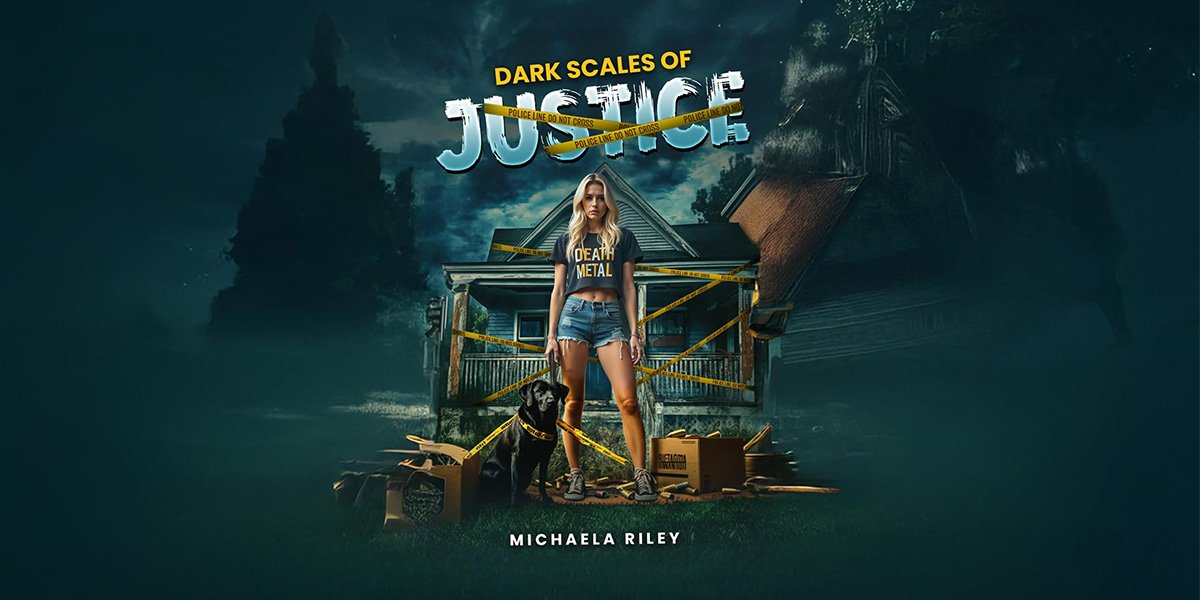The battle between good and evil is rarely as straightforward as it seems. While some decisions clearly fall on the side of right or wrong, life often presents situations where the lines blur, leaving us in a gray area filled with uncertainty. What seems morally clear in theory becomes far more complicated when faced with real-world challenges, where emotions, stakes, and consequences muddy the waters.
Take the struggle for justice, for instance. In a world that promises fairness, the reality is often much murkier. Systems built to deliver justice can be slow, flawed, or even manipulated.
People, too, are rarely entirely good or entirely bad—they act out of pain, fear, or desperation, adding complexity to their motives. Navigating these complexities requires resilience, reflection, and the courage to confront the unknown.
This blurred divide between right and wrong is the foundation of Jennifer Campbell’s journey in Michaela Riley’s Dark Scales of Justice. What starts as a quest for a peaceful new beginning turns into a moral and emotional labyrinth. Jennifer finds herself entangled in situations that challenge her perception of good and evil, forcing her to grapple with decisions where the “right” answer isn’t always clear.
A World of Shadows
Jennifer’s troubles begin when she moves into her new home, a charming beachside cottage she bought after years of hard work. But her dream quickly unravels when the Wilsons, the former owners, refuse to leave. Their defiance and threats seem like the actions of clear villains, but as Jennifer delves deeper, their behavior reveals a complicated mix of bitterness, regret, and a refusal to let go of their past.
The Wilsons’ actions are undeniably wrong—they manipulate and intimidate Jennifer, testing her patience and resolve. Yet, the story hints at the pain behind their actions, adding depth to their motives. Are they simply selfish, or does their struggle stem from a deeper sense of loss and helplessness?
The Turning Point: A Mysterious Package
Jennifer’s world takes a darker turn when a package arrives at her doorstep. Inside are guns and ammunition, items that could implicate her in something sinister. The package raises questions: Is this a mistake or a deliberate threat? Should she report it, or would doing so entangle her further in a web of suspicion?
This moment exemplifies the gray areas Jennifer must navigate. Reporting the package seems like the morally correct choice, but the risk of being misunderstood or targeted complicates the decision. Guided by her instincts and Michael’s advice, Jennifer chooses caution, though it weighs heavily on her conscience.
This decision forces readers to confront their own moral compass. What would you do in Jennifer’s shoes? Would you act on principle or prioritize self-preservation?
The Complexity of Justice
Throughout Jennifer’s journey, the very system meant to uphold justice proves to be flawed. Evicting the Wilsons from her property becomes a long and emotionally draining process, and the legal system’s inefficiencies leave Jennifer questioning its reliability.
This skepticism deepens as she uncovers disturbing truths about her neighbors and the community around her. People she once believed were trustworthy reveal hidden agendas, blurring the line between ally and adversary. Jennifer’s story underscores a harsh reality: justice is rarely black and white. It’s shaped by human flaws, personal biases, and competing interests.
Lessons in Navigating Moral Ambiguity
Jennifer’s struggle is not about achieving perfection but about finding her way through uncertainty. She makes mistakes, hesitates, and questions herself, yet her journey is defined by her persistence and moral integrity. Her ability to reflect on her actions and stay true to her values, even when the path forward is unclear, is what makes her story so compelling.
Her journey reminds readers that navigating moral ambiguity requires courage, empathy, and the willingness to accept that no decision is without consequences.
Whether facing a manipulative adversary like the Wilsons or deciding how to handle the mysterious package, Jennifer’s choices reflect the delicate balance between right and wrong.
A Reflection of Life’s Complexities
Michaela Riley’s Dark Scales of Justice masterfully portrays the complex interplay between good and evil. Jennifer Campbell’s story is not a tale of clear heroes and villains but of a woman learning to navigate the shades of gray. It challenges readers to reflect on their own values, decisions, and the complex interplay between principle and practicality.
Jennifer’s journey is a reminder that while the line between good and evil may be blurred, staying true to one’s integrity—even in the face of uncertainty—is what ultimately defines us.
For those who yearn for a narrative that dares to defy the established order and stir the embers of justice, Michaela Riley’s Dark Scales of Justice offers an unforgettable reading experience.
This mesmerizing tale will have you on the edge of your seat, grappling with the profound sacrifices demanded by liberty and witnessing the awe-inspiring resilience of the human spirit.

Average Rating